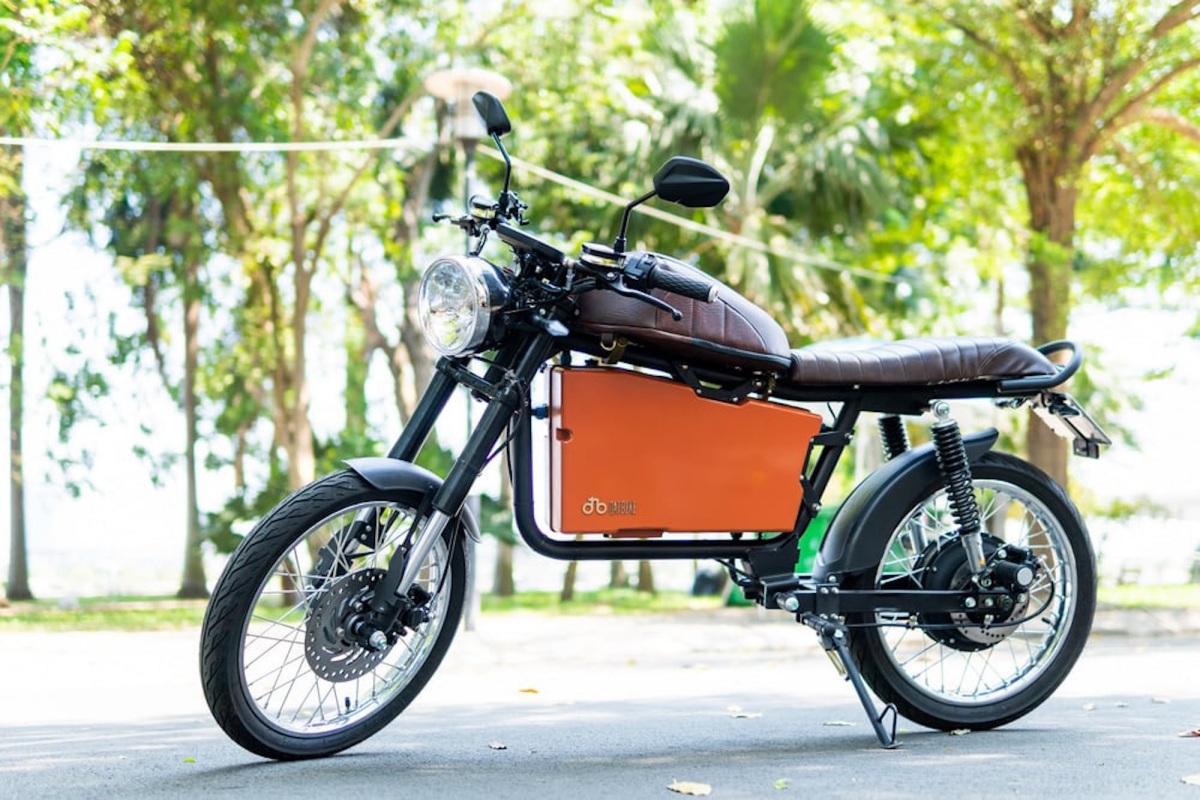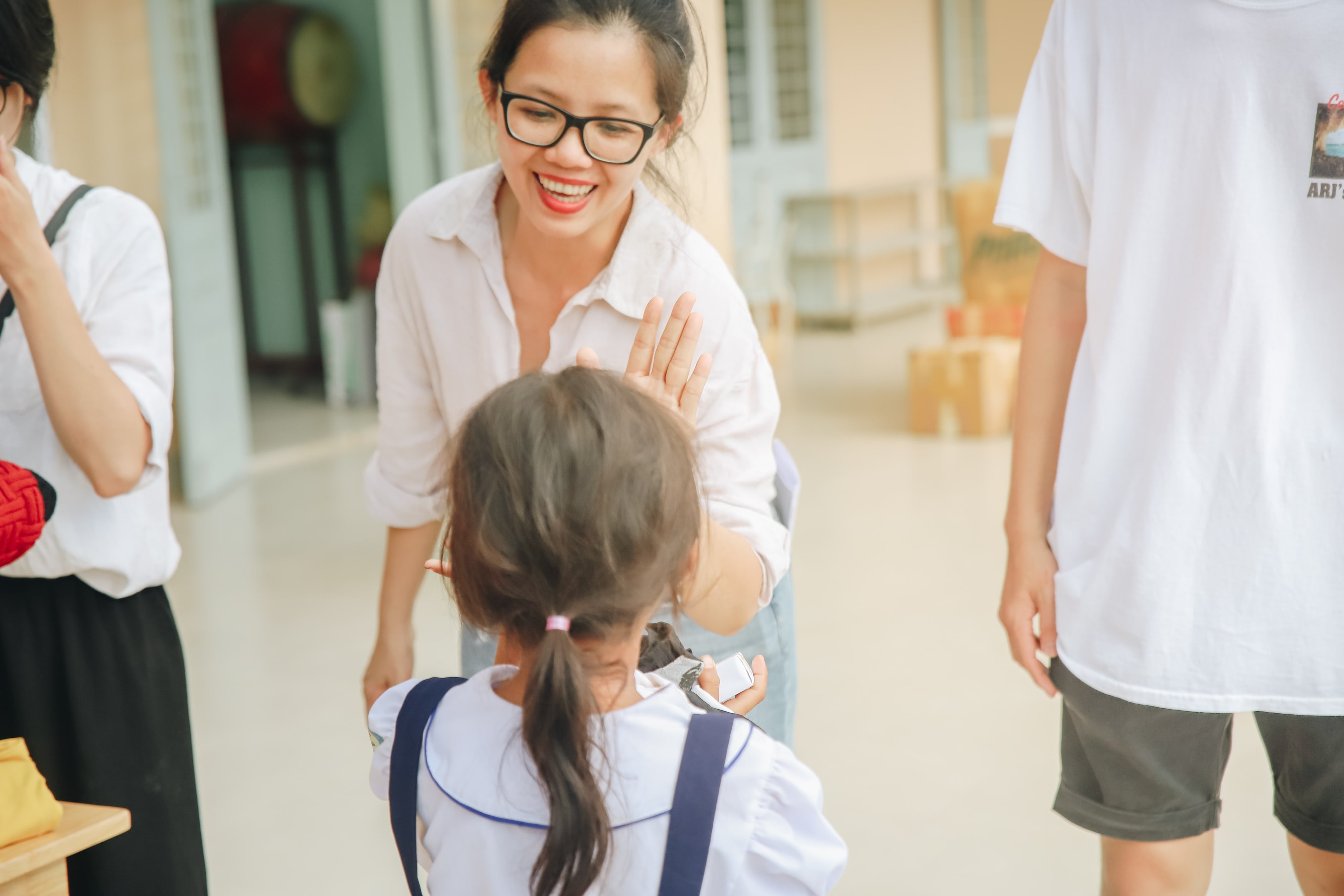Issues on plastic waste, climate change, and pollution aren’t new. It is, in fact, the reason world leaders are currently gathered at the Conference of Parties (COP) climate summit — for the 26th time since 1995. This year’s conference in Glasgow comes after UN scientists issued a “code red for humanity” and warned global surface temperatures are rising faster than earlier thought.
But while nations scramble to commit to their net-zero goals at the conference right now, the truth is, the world outside Glasgow remains the same: 300 million tonnes of plastic waste used and thrown everywhere, thick smog hanging over skylines, and hazardous waste either clogging landfills or littering oceans.
More than clearly, tangible actions shouldn’t just come from world leaders attending the COP26. Everyone has something to contribute, big or small, to lead the world towards a low-carbon future. It can be as simple as using bamboo or paper straws, or trading in gas guzzlers for electric vehicles.
For their part, five young Vietnamese entrepreneurs are building their own brands that promote sustainable living. From offering a Zen space for recycling and used battery drop-off to manufacturing a stylish electric two-wheeler for an environmentally-conscious commuting experience, they encourage others to make that “green” switch and help save the world.
Proudly upholding their Vietnamese heritage as they make bold moves to champion sustainability around the world, these five entrepreneurs are unstoppable in their mission.
Son Nguyen — Dat Bike (Vietnam)

While studying in the US, Son Nguyen would go back to Vietnam every year for the holidays. But aside from witnessing his homeland’s progress year after year, he also noticed the growing number of motorbikes — and the thick black smoke that enveloped the roads. In Vietnam, vehicles cause 70% of pollutant emissions, of which 90% are from gasoline motorbikes. When he returned to Vietnam in 2018, his mind was set on making Vietnam greener and cleaner, and so he launched Dat Bike, Vietnam’s first-ever local e-bike maker.
“Our mission is to convert all gasoline-powered motorbikes in Vietnam and Southeast Asia to electric. Electric bikes have no emissions, no noise. With Weaver (Dat Bike’s first model), we use lithium-ion batteries which are considered non-toxic and are up to 80% recyclable,” explains Nguyen.
Dat Bike made a good impression when Nguyen brought it to Shark Tank in 2019. Since then, Weaver has been considered the most powerful Vietnamese electric motorbike, with its ability to accelerate from zero to 50km/h in just three seconds. It takes only three hours to charge and allows users to go 100km on one charge. The 72V battery pack can last for over 10 years.

Nguyen is also proud that Dat Bike has its own speed controller and battery pack, which means it does not rely on external partners and is able to follow eco-friendly processes in most parts of its production. This also allows Dat Bike to compete with gas motorbikes in terms of pricing.
“I think if given a choice, between an electric and a gas bike, everything else being equal, people will go electric. This is simply because electric bikes are strictly better for our planet and everyone wants to be a better person. Our customers are people who want to be better. They are pioneers and want to make a huge impact by their choices.”
Quyen Nguyen — Laiday Refill Station (Vietnam)

Quyen Nguyen has always wondered why nobody in Vietnam ever thought of creating a space that can serve as a “refill station” for essential products, thus using less plastic and creating less waste. When she realized that she had the power to change this, Nguyen launched Laiday Refill Station in October 2018. It became the first bulk store in Vietnam where Vietnamese consumers can buy over 400 eco-friendly reusable products and refill daily non-food products without causing unnecessary waste.
“As part of a generation that is well aware of the plastic pollution and climate crisis, I think sustainability is the right thing to do, the right cause to fight for,” says Nguyen. “Sustainable is the idea that today's generations live and meet their needs without compromising the ability of future generations to meet their own needs. Personally, I would feel very embarrassed if one day my nieces grow up and ask how come I had known about this and done nothing.”

Laiday offers consumers opportunities to reuse their containers and reduce new packaging through refilling services, resulting in saving earth lots of plastic wastes. With the ambition to become an inspiring business model in sustainable development through its circular business model “3Ps: Profit – Planet – People”, the eco stores also serve as a collection point for environmentally-hazardous wastes like old batteries and printer cartridges, a donation point for hairs for breast cancer patients, a sharing point for plant seeds. Not to mention it also offers zero-waste wedding planning services and DIY upcycling workshops.
One of Laiday principles is “locals for locals", supporting the local economy and creating jobs for the locals and especially the vulnerable. 80% of Laiday products are proudly made in Vietnam by 100% Vietnamese artisans and families. 95% of Laiday products are made by women, including the ones with disabilities. 100% of the refillable products are from suppliers located in Saigon or within 30 kilometers of the city to ensure that even logistics have a less ecological impact.
Helly Tong — The Yen Concept (Vietnam)

Former model, entrepreneur and nature lover, Helly Tong founded The Yen Concept in 2016, with a vision of reconnecting Vietnamese people with nature. Tucked away on an alleyway down one of Saigon’s busy roads, The Yen Concept is a “green destination” where sustainable lifestyle choices are made more accessible. Beyond the sustainably created or sourced products, workshops are also being held regularly to offer customers fun and interactive ways to learn more about recycling.
“In every business that I choose to create, everything starts from my desire of creating a better world, healing nature and building trust & vision of a green & sustainable life ahead. A sustainable community is what I aim for in everything I do. As defined, sustainability is not only about meeting our current needs but it’s also about not compromising the ability of future generations to meet their own as well,” says Helly Tong.

Tong also co-founded Laiday Refill Station with Quyen Nguyen, as the two power women share the same vision and mission. She also serves as creative director at the Song Foundation, a sustainable community development project established in 2018. The foundation leads capacity-building projects to expand communication about environmental issues, build safe houses and develop sustainable livelihoods for disadvantaged people, as well as carry out reforestation and afforestation projects across Vietnam.
Sang Le — Peko Produce (Canada)

Having launched her own pre-teen magazine while studying in Saigon to starting a second-grade produce delivery service in Vancouver, where she’s currently finishing her Commerce degree, Sang Le has always considered herself curious and innovative. She has that can-do attitude, especially for endeavors she thinks positively impact the environment and society.
Sang Le’s newly established Peko Produce (derived from “peculiar”) is a first-of-its-kind delivery service for rejected produce in Vancouver. With a 100% sustainable business model, Peko buys fresh produce that has been rejected from big supermarkets because “they aren’t pretty enough — wrong size, wrong shape, and all” and sells them at lower prices to consumers.
“I’ve learned that one-third of all the produce in the world is wasted every year. In Canada alone, we throw away $3.1 billion worth of food because they didn’t pass quality checks at big grocery stores,” says Le. This fact is especially jarring when you consider that over 4 million people in Canada struggle to put food on the table, according to Reuters.

Thinking of all the food waste, the number of people who could’ve made something of the rejected vegetables and fruits, and the farmers whose profits have suffered from the process, Le partnered with a friend, Arielle Lok, to bring her passion project to life. The first step: joining startup competitions and registering for local startup incubators in Canada to raise funds.
“Since we first operated in May, we’ve rescued over 10,000 pounds of fresh produce and allowed consumers to save more than $35,000. This business is really about helping people save money by saving food. As people are now shifting to more sustainable lifestyles, it’s easy to find eco-conscious consumers. I have big goals for Peko, and I want our services to expand beyond Vancouver. I may even someday bring this to Vietnam.”
Dina Diep Hoang — Hoangem Swim (Norway)

Norway-based Dina Diep Hoang’s passion for travel has allowed her to see the world, and learn how it works. From dreaming of having her own creations showcased on the runway as she attended glamorous fashion weeks in Europe to thinking about how creating one dress often involves Earth-damaging processes, Hoang knew she had a mission to fulfill.
“I’ve always wanted to do something with a purpose. And since I am into fashion, stylish swimwear, to be specific, I thought of making my own brand. But I want it to be centered on sustainability,” says Hoang. “I want to promote slow fashion.”
Hoang started working on Hoangem Swim a few years ago, but finding business partners became a real challenge because she wanted every step of the production process to be environmentally friendly. It was only during the COVID-19 lockdown in Norway last year when Hoang had the chance to do extensive research. After days and nights of sending out emails and connecting with different companies, Hoang was able to seal a deal with Italian company Aquafil as its source of materials and with a team in Bali, Indonesia that would hand-sew the swimwear designed by Hoang herself.

The first step is to rescue waste such as fishing nets and old carpets that would otherwise pollute the earth. The waste is then sorted and cleaned before it’s transformed into a new textile source, used to create our sustainable products. This material can then be recycled infinitely without ever losing its quality. Every piece is accurately estimated before cutting, which leads to zero textile waste. All packaging units like stickers, labels, cards and bags are also recycled and eco-friendly.
“We believe that slow fashion is beyond trends, beyond fashion, beyond something that has an expiration date; slow fashion prioritizes people and the planet. The enjoyment should be longer and more conscious,” she says.
Aside from busily preparing for its 2022 collection (the reversible swimwear is something to look forward to), Hoangem Swim is also actively supporting a non-profit environmental organization that works on protecting Inner Oslo Fjord’s natural marine environment.



